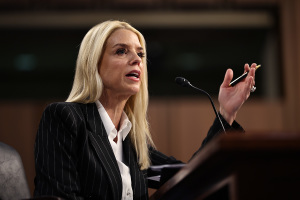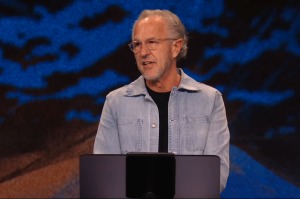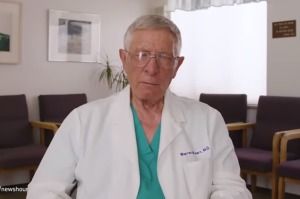Russell Moore: Why Christianity Can Thrive Now That It's Not Normal (CP Interview 1/2)
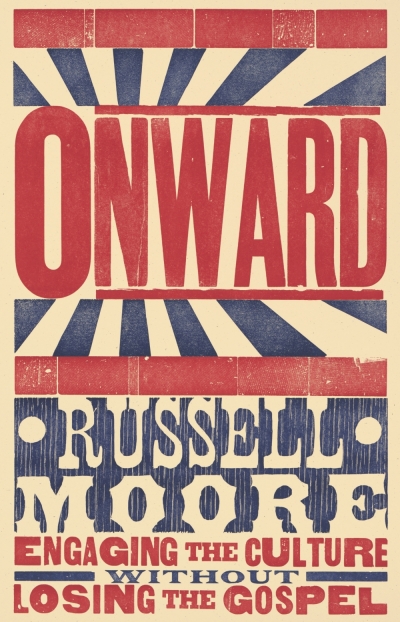
Now that Christianity is strange to the larger American culture, Christians have an opportunity to reclaim the freakishness of the Gospel message, Russell Moore writes in his new book, Onward: Engaging the Culture Without Losing the Gospel.
"As American culture changes, the scandal of Christianity is increasingly right up front, exactly where it was in the first century. The shaking of American culture will get us back to the question Jesus asked his disciples at Caesarea Philippi: 'Who do you say that I am?' As the Bible Belt recedes, those left standing up for Jesus will be those who, like Simon Peter of old, know how to answer that question.
Once Christianity is no longer seen as part and parcel of patriotism, the church must offer more than 'What would Jesus do?' moralism and the 'I vote values' populism to which we've grown accustomed. Good," wrote Moore, president of the Southern Baptist Convention's Ethics & Religious Liberty Commission, in Chapter two.
In a Wednesday phone interview with The Christian Post, Moore explained that the Church in America can thrive, as the Church always has, when it is seen as abnormal or counter-cultural.
He also reflected on the events of the last month, which saw the murder of Christians in a South Carolina church service and the imposition of gay marriage on all 50 states by the U.S. Supreme Court. This time is "a crucial moment for the Church's witness right now," Moore said.
In part two of the interview, Moore explains why reminding himself daily, the next Billy Graham could be drunk right now, helps his cultural engagement.
Onward will be released on Aug. 1 and is available for pre-order.
Here is the lightly edited transcript of part one of that interview:
CP: June was an eventful Month for the Church in America. You had the racist shooting at Charleston Emanuel AME, followed by the Confederate flag debate and the incredible public witness of the families of those slain. That was followed by a Supreme Court gay marriage decision and Christians who opposed the decision were described by some as hateful bigots. And now we're hearing about churches being set on fire by an arsonist. Have you had a chance to reflect on what these events tell you about the state of the Church in America today?
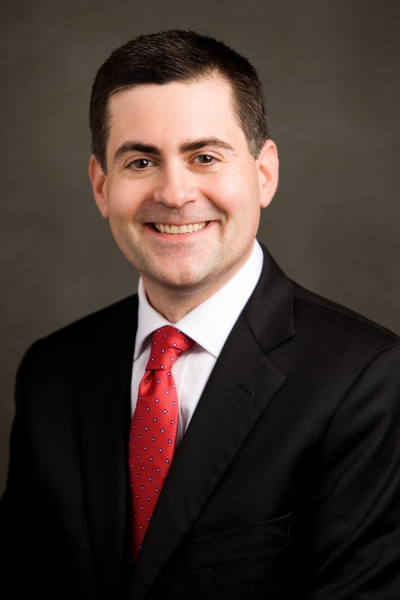
Moore: The events of this summer remind us of our responsibility to bear witness. Which means not only to do things but to explain to the world around us why we are doing them.
I think we see both in the redefining of family norms and in the ongoing racial tension around us, the Church has to speak for the future. And the future is not the abstract "right side of history" of sexual liberationists, the future is the kingdom of God. So we have to be informed about the kingdom of God and we have to live that out within our own congregations.
And I think we saw a great deal of that witness in the response of the families [of those slain at Charleston Emanuel AME].
One of the greatest joys I've had in this job is explaining to secular journalists and politicians why those families would react the way they did, to talk about forgiveness and in that to talk about the Gospel, how in a Christian view of reality forgiveness doesn't mean doing away with justice, but that Christians believe in justice both in terms of the state and also, ultimately, in terms of the judgment seat of Christ, that forgiveness means Romans 12, giving place to the vengeance of God.
I think it's a crucial moment for the Church's witness right now.
CP: In Chapter one you wrote about a conversation you had with a lesbian activist in which she described herself as "normal" and, by implication, you are "not normal." "I suspect she's right," you wrote. Now that conservative Christians are "not normal" or "counter cultural," are there advantages that come with that?
Moore: There are disadvantages and advantages. The disadvantages relate to society. For instance, there were people who, 50 or 100 years ago, did not divorce because divorcing would have been seen as a social scandal. So they stayed together and worked at their marriages, and that was a good thing, in many cases at least, for them, for their children, and for society at large.
The advantage is for the Church to actually be the Church. Whenever the Church becomes a water carrier for the culture, the Church's witness turns into a generic, abstract articulation of values, rather than the "thus saith the Lord" of the Gospel.
So I think we have the opportunity now to be a distinctive voice, which is where Christianity always thrives. And we've been here before. This is not new terrain. It's new terrain in American life but it's certainly not new terrain in Christian life.
CP: An argument we hear often is that many are turned off by the position of conservative Christians on homosexuality and gay marriage, so the church needs to change in order to be a more welcoming place for those people. What's your response?
Moore: As I talk about in the book, we've heard that before too. We were told at the beginning of the 20th century that contemporary people would not be able to accept the supernatural, so if the Church didn't adapt to a scientific, materialist view of reality, the Church would not be able to reach the next generation. And that same song has been sung repeatedly over the 20th century.
Think of the notorious Bishop John Shelby Spong who said that Christianity must change or die, when in reality the forms of Christianity that did adapt to that died. It turns out, once you toss aside virgin births and empty tombs, you no longer have Christianity at all, you simply have another form of American civic association, and we don't need another one of those.
















